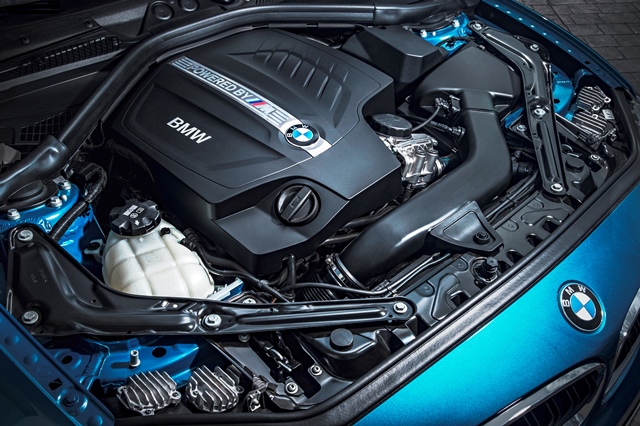Every year for the past 23 years, WardsAuto has put out their top 10 list of best engines of the year. This year there was something clearly missing that had never been missing before: a V8.
WardsAuto said, “many of the high-output turbocharged 6-cyl. engines in the competition, even some that didn’t make the cut, generate enough horsepower and torque to fill the void.” Personally, I’m in love with V8 engines because of their sound and how easily they make power, but the lack of one on the list is not what has my jimmies all rustled on this one. While V8s aren’t the cleanest or most efficient engines in the world, they do serve their purpose, are predictable, and are, in most cases, pretty reliable. Downsized engines, however, are proving to be exactly the opposite of that. First, here’s the list of top 10 engines from The Truth About Cars with a brief explanation of what the list entails.

Ward’s measures the engines as an overall success or failure; marveling solely at tech or being intoxicated by a unit’s performance isn’t enough. Editors score each drivetrain based on power, nose attenuation, fuel economy, new technologies, and comparative specs before deciding if the complete package helps the car shine more brightly than the competition. The only catch is the vehicles tested must have a base price no higher than $62,000 to be eligible.
And the big winners are:
3.0L Turbocharged DOHC I-6 (BMW M240i)
1.5L DOHC 4-cyl./Dual Motor EREV (Chevrolet Volt)
3.6L DOHC V-6/Dual Motor PHEV (Chrysler Pacifica Hybrid)
2.3L Turbocharged DOHC 4-cyl. (Ford Focus RS)
2.0L DOHC 4-cyl./Dual Motor HEV (Honda Accord Hybrid)
1.4L Turbocharged DOHC 4-cyl. (Hyundai Elantra Eco)
3.0L Turbocharged DOHC V-6 (Infiniti Q50)
2.5L Turbocharged DOHC 4-cyl. (Mazda CX-9)
2.0L Turbocharged DOHC 4-cyl. (Mercedes-Benz C300)
2.0L Turbo/Supercharged DOHC 4-cyl. (Volvo V60 Polestar)
So as you can see there are no V8s and that’s the first time in the list’s history that has happened. Now let’s get down to business. While these engines might be fine, downsized engines are proving that they aren’t any more reliable than their larger predecessors. Nor are they proving that they are more fuel efficient given that the Mazda lineup uses 2 and 2.5l engines and get the same gas mileage as Chevy’s 1.5l turbo, in similarly sized and weighted cars. Not only that, but the 1.5l turbos are melting themselves, as evidenced by this video.
In fact, downsizing engines is proving to be even MORE detrimental to the environment as these engines are potentially even larger polluters than their up-sized cousins of yesteryear. Again, according to The Truth About Cars:
Reuters reports that General Motors, Renault and Volkswagen plan to scrap their smallest engines, with other automakers expected to follow suit. While small, boosted motors can deliver excellent fuel economy, the nitrous oxide and carbon dioxide output is often out of all proportion to the diminutive displacement. That goes for both gasoline and diesel powerplants.
Ford’s much-touted 1.0-liter EcoBoost three-cylinder, found in the Fiesta and Focus, earns low marks in real-world emissions testing (making TTAC’s managing editor a monster). An independent fuel economy and emissions testing company, Emissions Analytics, has begun on-road testing of new vehicles, and the results aren’t good for the Blue Oval.
The company’s Equa Air Quality Index rates the 1.0-liter Focus an “E” on its “A” to “H” air quality scale. That places the model in compliance with a testing standard that ended in 2014. Ford’s Fiesta doesn’t fare much better, rating a “D”, which still doesn’t reach current Euro 6 emissions requirements.
So while the V8 is missing from Ward’s list, downsized engines that aren’t proven in the long-term are getting high praise. Which, in my honest opinion, is a heaping load of bullshit. MPG isn’t the be-all, end-all of great engines and this list seems to have that in spades. It also seems to have a propensity for horribly slow and useless engines as I’ve driven the 1.4l turbocharged DOHC 4-cyl. in the Hyundai Elantra Eco and found that it couldn’t get out of it’s own way at highway speeds. Fuel efficient, sure, but there are more real world applications that should be taken into account here. No doubt, not all of these, nor all downsized engines are bad and, conversely, not all V8 engines are good. But to completely dismiss them from the list in favor of short-term findings instead of decades of R&D seems foolish to me.
This is just more fuel to the ever growing fire that you should do your homework and really do some research on what is out there. Don’t take our word for it. Use our musings and articles to fuel your own research. You owe it to yourselves as consumers and as people.
(Source: The Truth About Cars)




Leave a reply